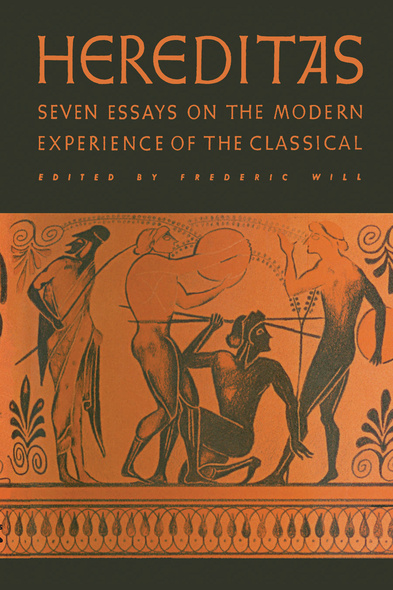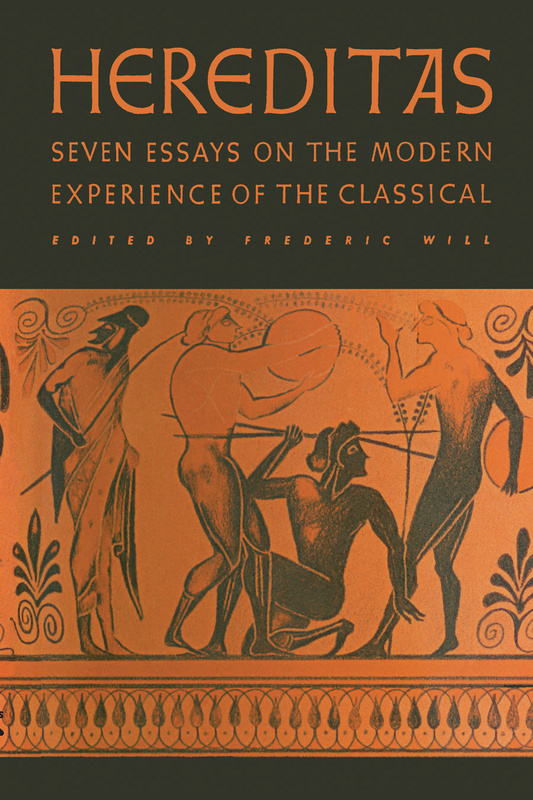Hereditas
Seven Essays on the Modern Experience of the Classical
Is Ancient Greece still meaningful to the twenty-first-century world? The vitality of the classical tradition, which has been a long-enduring and important element in our culture, is the concern of the seven scholars who in this book present their answers to this question.
In various ways their essays support editor Frederic Will's statement that the "complex and mature group of awarenesses" embodied in the classical tradition still help to maintain the continuity of human culture, thus sharing in the unbroken process of developing a Western civilization. These awarenesses are not self-perpetuating but must be sustained by the guardians of tradition—schools, literary creators and critics, libraries, and scholars. In this book, particular attention is devoted to the literary creators. In discussing the impact of Greek myth, Greek literature, and Greek philosophy on modern writers, the present essayists try to determine how alive Greek classical culture is today, how meaningful it is, and how it can be perpetuated. Through their presentations in these seven essays, the contributors prove that the tradition does not suffer from lack of able guardians.
These studies in the interpretation of literature and thought afford stimulating evidence that the classical tradition is still alive in our modern age.
- Introduction, by Frederic Will
- Part One. The Classical in Modern Literature
- Gods, Heroes, and Rilke, by Ralph Freedman, The University of Iowa
- Daedalian Imagery in A Portrait of the Artist as a Young Man, by David Hayman, The University of Texas
- Kazantzakis’ Odyssey, by Frederic Will, The University of Iowa
- The Embattled Myths, by Leon S. Roudiez, Columbia University
- Pound and Propertius: Some Techniques of Translation, by J. P. Sullivan, The University of Texas
- Amphitryon 38: Some Notes on Jean Giraudoux and Myth, by Melvin J. Friedman, The University of Maryland
- Part Two. The Classical in Modern Religious Experience
- The Place of the Classics in T. S. Eliot’s Christian Humanism, by David J. De Laura, The University of Texas
- Index





